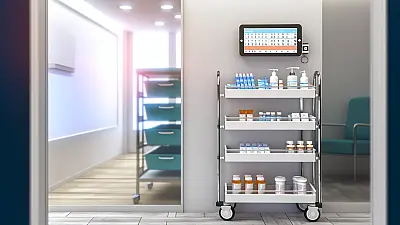BISMARCK, ND - A nursing staff member at Augusta Place, A Prospera Community was suspended pending investigation after administering the wrong type of insulin to a resident, prompting facility-wide medication safety reforms and enhanced oversight protocols.

Critical Medication Administration Failure
The incident, which occurred on July 30, 2024, involved a serious breach of medication administration protocols when a nurse gave a resident an incorrect type of insulin. The facility's investigation determined that nursing staff failed to follow the established "Rights of medication administration" - a fundamental safety protocol designed to prevent exactly this type of error.
The Six Rights of medication administration include verifying the right patient, right medication, right dose, right route, right time, and right documentation. These protocols serve as critical safety checkpoints that must be confirmed before any medication is given to a patient.
Insulin errors represent particularly serious safety concerns because different types of insulin work at different speeds and intensities. Administering the wrong insulin type can lead to dangerous blood sugar fluctuations, potentially causing hypoglycemia (dangerously low blood sugar) or hyperglycemia (dangerously high blood sugar). Both conditions can result in serious medical complications including loss of consciousness, seizures, or diabetic emergencies requiring immediate medical intervention.
Medical Significance of Insulin Safety Protocols
Proper insulin administration requires meticulous attention to detail because diabetic residents often receive multiple types of insulin with different onset times and durations of action. Rapid-acting insulin works within minutes, while long-acting formulations can affect blood sugar levels for up to 24 hours. Confusing these medications can create unpredictable and potentially life-threatening blood glucose patterns.
Healthcare facilities must maintain strict protocols for insulin storage, verification, and administration. Standard practice requires nurses to verify the specific insulin type against the physician's order, confirm the resident's identity using two identifiers, and document the administration immediately. The medication should be checked multiple times throughout the process to prevent errors.
The facility's corrective response included immediate one-on-one education with the involved staff member regarding proper medication administration procedures. This individualized training approach allows for focused review of the specific errors that occurred and reinforcement of correct protocols.
Comprehensive Safety Response and Monitoring
Augusta Place implemented several corrective measures following the incident. The facility suspended the involved nurse pending completion of their investigation, demonstrating a commitment to accountability while ensuring resident safety during the review process.
Beginning on the evening of July 30, the facility initiated mandatory education sessions for all nursing staff prior to their shifts. These sessions, conducted by the Director of Nursing or designated representative, focused specifically on reinforcing the Six Rights of medication administration. The education program was scheduled to continue through August 16, 2024, ensuring comprehensive coverage of all nursing personnel.
Enhanced oversight measures included daily audits of insulin administration during medication passes, starting July 31, 2024. These audits specifically monitor whether residents receive the correct insulin type and verify that nurses properly follow established medication administration protocols. This direct observation approach allows supervisors to identify potential issues before they result in medication errors.
Industry Standards for Medication Safety
Professional nursing standards require multiple verification steps for high-risk medications like insulin. Best practices include barcode scanning systems, double-checking procedures for high-alert medications, and regular competency assessments for staff administering complex drug regimens.
The facility's response aligns with healthcare industry expectations for serious medication errors. Immediate investigation, staff education, enhanced monitoring, and systemic process improvements represent standard approaches to preventing recurrence of similar incidents.
Medication errors in long-term care settings require particularly robust prevention strategies because residents often have complex medical conditions requiring multiple medications with potential for dangerous interactions. Facilities must balance efficiency in medication administration with the thoroughness required to ensure safety.
The implementation of ongoing audits demonstrates recognition that sustainable safety improvements require continuous monitoring rather than one-time corrective actions. Regular observation of medication administration practices helps identify procedural drift before it leads to patient harm.
Augusta Place's corrective actions address both the immediate incident and systemic factors that contributed to the error. The combination of individual accountability, facility-wide education, and enhanced monitoring protocols represents a comprehensive approach to medication safety improvement that extends beyond the specific incident to strengthen overall care quality.
Full Inspection Report
The details above represent a summary of key findings. View the complete inspection report for Augusta Place, A Prospera Community from 2024-08-01 including all violations, facility responses, and corrective action plans.
💬 Join the Discussion
Comments are moderated. Please keep discussions respectful and relevant to nursing home care quality.